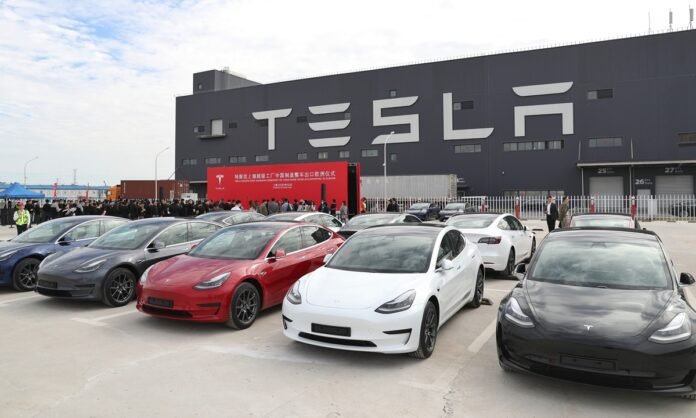According to persons with direct information, while the government considers Tesla’s plans to enter the market, Tata Motors (TAMO.NS) is pressuring Indian officials to preserve domestic industry and its investors rather than lowering import levies on electric vehicles by 100%.
Tesla (TSLA.O) is recommending to establish a factory in India as part of its efforts to increase domestic manufacturing and EV use, but it is also asking for lower import levies on electric vehicles. A new strategy being developed by India would reduce import taxes on electric vehicles to as little as 15% for businesses that commit to some local manufacture. The plan might enable Tesla to establish a manufacturing facility in India to produce its planned $24,000 vehicle while bringing in its more costly models at a reduced tax rate.
Tesla’s approach differs from its miserably executed plan from the previous year, in which it only pressed India to reduce levies. According to two people with knowledge of the discussions, Tata has rejected the idea in meetings with the office of Prime Minister Narendra Modi and other authorities, claiming that its investors made decisions believing the tax policy favouring locals would remain unaltered.
Requests for comments were not answered by the offices of Tata or Modi. According to the first source, Tata is also claiming that India’s EV players require more government help in the early stages of the industry’s growth, citing the example of imported petrol or diesel cars that are still subject to up to 100% taxation despite the industry’s maturity. “Lower duties will hit the entire (domestic) industry,” the individual stated, adding that “the investment climate will get vitiated.”
2019 saw the launch of Tata, one of the largest automakers in India, into the EV market. The EV industry was valued at approximately $9 billion by the private equity firm TPG and the Abu Dhabi state holding company ADQ, which invested $1 billion in 2021. The second source stated that lowering levies for foreign players could jeopardize future financing.
India has a tiny EV market, but Tata has produced 74% of the 72,000 electric vehicles sold thus far this year. Tesla is focusing on the potential of India’s auto market, which is among the largest in the world and sells more than 3 million cars annually. The company is losing market share in the increasingly saturated U.S. market. India’s EV market is currently relatively small, but thanks to government initiatives to encourage the use of clean vehicles, it is expanding quickly.
Since his June meeting with Tesla CEO Elon Musk in New York, Modi has been directly in charge of negotiations with the company. The domestic auto sector successfully fought against Tesla’s prior plan to slash taxes in India; in late 2021, a Tata Motors executive stated that the move would be “contrary” to the government’s push for Make-in-India.

Opinion of the Indian Government on Tata’s plan
According to a third source, a senior federal official involved in policymaking, Mahindra & Mahindra (MAHM.NS), another Indian major, has also expressed reservations to officials regarding the reduced EV tax plan. Mahindra & Mahindra has collected around $400 million from Singapore’s Temasek and British International Investment. Mahindra opted not to respond.
According to the third source, New Delhi is attempting to allay the worries of regional automakers, but India is still committed to facilitating international participation in the EV market in order to forward its objectives. Modi wants India’s yearly car sales to increase from the current 2% to 30% electrified vehicles by 2030. Infrastructure for charging is also very new.
The official promised, “We will come up with a policy that addresses everyone’s fears.” One possibility, he added, was to reduce import duties only over a specific price point.
India now levies a 100% EV import tariff on vehicles costing more than $40,000, which includes the majority of Tesla models. Three EV models from Tata range in price from $10,400 to $24,000.
If we want to become an EV hotspot in India, we need additional manufacturers.”The Indian official stated that local industry does not have to worry about being wiped out by Tesla or anyone else.”
India and Tesla are having discussions at a time when other nations are wooing the US behemoth. The prime minister of Thailand claimed this week that he gave Tesla executives a tour when they were searching for property and expressed confidence that the business will make an investment there.


